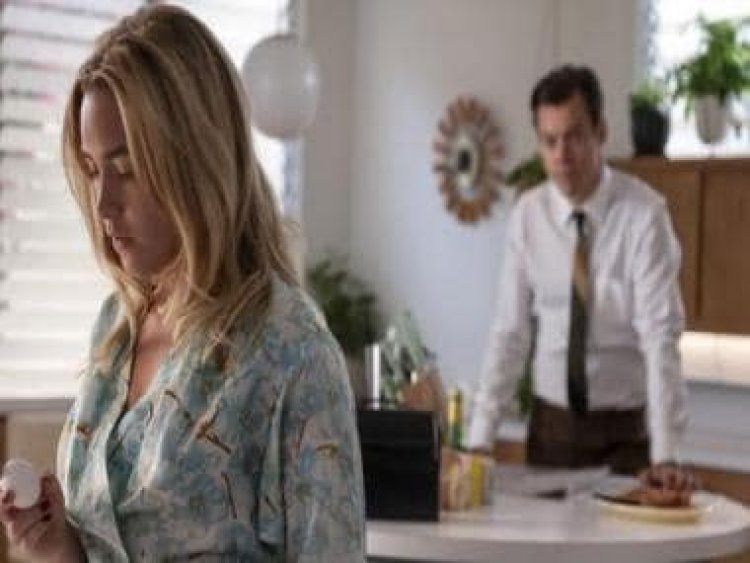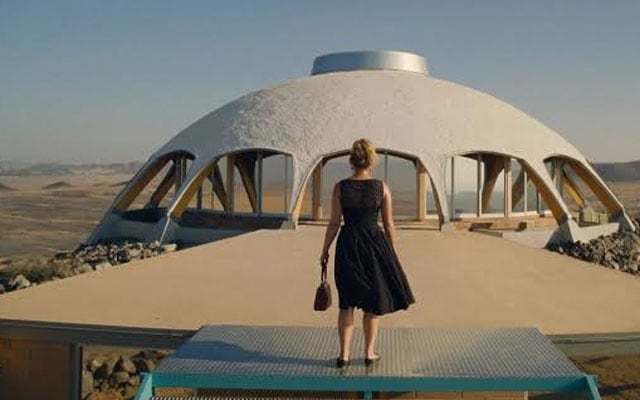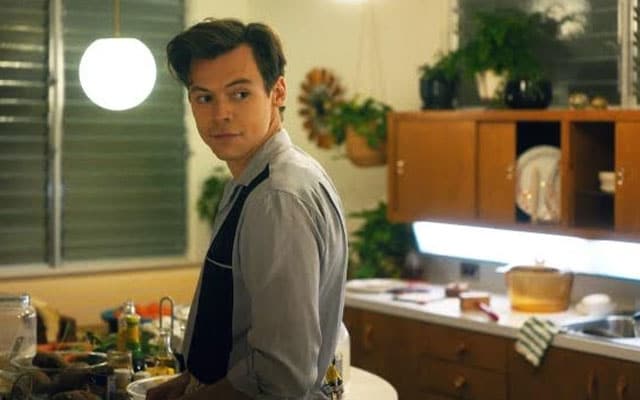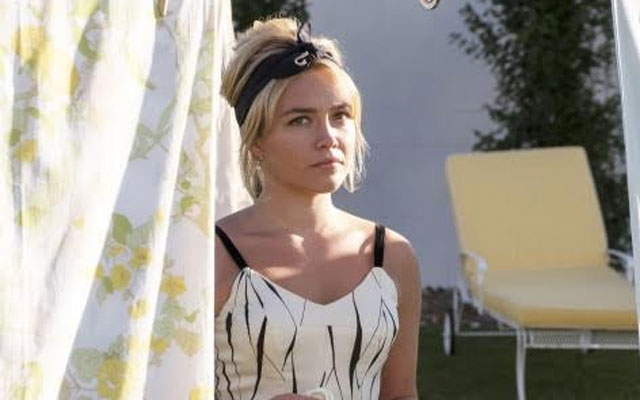Don’t Worry Darling review: Florence Pugh comes out as sole survivor in this car crash of a movie
Don’t Worry Darling review: Florence Pugh comes out as sole survivor in this car crash of a movie

Between on-set romances, rumoured feuds, Chris Pine memes and the most analysed spitting scandal since Kramer & Newman v. Keith Hernandez, the press cycle of Don’t Worry Darling sure had everyone worrying. Had the noise hijacked the movie itself? Was the noise calculated publicity because Warner Bros knew they had a damp squib in their hands? Would the presence of the ever-phenomenal Miss Flo end up being its only saving grace?
An emphatic “YES” to the first and last concerns. Vis-à-vis the one in between — perhaps. What is beyond question is Don’t Worry Darling isn’t half as intriguing as the drama that preceded its release. The movie, as Harry Styles so eloquently described it, does “feel like a movie, like a real, like, you know, ‘go to the theatre’ film movie.” Olivia Wilde’s second feature presents a fantasy of mid-century suburban bliss where — it is no big spoiler to note that — not everything is as it seems. When a housewife named Alice (Florence Pugh) dares to ask questions, it will take her down a rabbit hole where she will learn a truth as painfully obvious as undeniably horrifying.

Palm tree-lined streets, cookie-cutter condos, floral print cocktail dresses, and all the pastel colours work overtime to paint the company town of Victory, California as a postcard-perfect community. Each morning, before the husbands drive off to their top-secret jobs in their shiny convertibles, diligent wives pack their lunches and kiss them goodbye. While the men work, the women vacuum, cook, shop, enjoy martinis, and gossip by the pool. What exactly the men do at work isn’t a question the women are allowed to ask. If they want to continue living their “perfect” lives, the women must stay within the confines of the town and not venture out into the surrounding desert. When Margaret (KiKi Layne), the only Black woman with anything to say in the movie, violates these company rules and suffers the consequences, Alice starts to realise there is something off about the town. Pulled out of her domestic bliss, she starts to ask questions of her own, causing more cracks in the façade. She can’t figure out if she is dreaming, remembering or hallucinating. Everyone refuses to buy the glitches in the matrix she discovers. The men discredit her awakening as delusion. But nothing will stop her from getting to the bottom of the conspiracy afoot.

Leave it to Pugh to adapt to every challenge thrown her way and keep the movie passable till it burns up in a car crash. A tempest of emotions, from confusion to despair to anger to determination, play out across her face, as Alice launches into her quest for the truth. Styles hams it up as the husband Jack in a performance rendered all the more incompetent by the consummate skills of his scene partner. The only co-star who comes close to matching Pugh in some way and seems to have understood the assignment is Pine, who brings the quiet menace of a cult leader as Jack’s boss Frank. It is whenever Pugh and Pine play off against each other that the movie gains a pulse.
For the most part, Wilde seems too pleased retracing contours of The Stepford Wives: welcome to the American Dream suburbs; husbands are devious corporate types; wives seem happy to do their bidding; until one suspects there’s something not quite right and tries to uncover the truth; the myth of the housewife content in her domestic ambition is debunked; and the utopia of suburbs is exposed as a sham. The Ira Levin novel (on which the 1975 movie was based on) suggested men would have their wives replaced with robotic slaves if it meant they would maintain absolute control and prop up their fantasy of domesticity. Instead of turning wives into compliant robots, Don’t Worry Darling takes the more insidious body subjugation path that Levin had explored in Rosemary’s Baby. The conspiracy here however has a less Satanic, more sci-fi design.

As the movie peels away the layers to reveal the rot beneath the surface of suburbia, it borrows ideas from The Truman Show, The Matrix, Black Mirror’s USS Callister among others. The men of Don’t Worry Darling feel their masculinity has been threatened by whatever autonomy has been afforded to women over the years. Their cabal is born of an anxiety over this perceived loss of power. To feel like they are in control again, they have decided to return to more sexist times. Though the movie acknowledges the misogyny that remains alive and well to this day, it fails to modernize or deconstruct The Stepford Wives concept in any perceptive ways. Devoid of any satirical impetus of its own, the narrative starts to drag. The longer it drags, the more fault-lines open up.
The irony is Don’t Worry Darling turns into a Stepford wife in itself: a good-looking, mechanized clone with no personality and programmed to do what it is supposed to and little else. For a movie intent on charting some tricky thematic territory, it is content to cut the most straightforward path through it. Wilde is so hellbent on spoon-feeding her ideas she ends up exhausting the movie’s allegory and weakening its potency. The end result is a movie that is neither well-thought-out nor thought through. None of the pretty costumes, the dollhouse set design, and a fine lead performance can mask a movie as shallow as its suburbia.
Don’t Worry Darling is now running in cinemas across India.
Prahlad Srihari is a film and music writer based in Bengaluru.
Read all the Latest News, Trending News, Cricket News, Bollywood News, India News and Entertainment News here. Follow us on Facebook, Twitter and Instagram.
What's Your Reaction?



























































